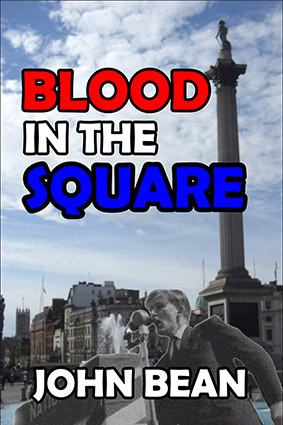Review of “Blood in the Square” by John Bean

Blood in the Square, by John Bean
Ostara Publications, 2014; Kindle version
Reviewed by Colin Liddell
Blood in the Square is a highly readable novel about the world of nationalist politics in Britain of the 1960s. I raced through its 119 pages in a couple of normal working days. This might suggest that it is a well-crafted work by a veteran novelist, with all the tricks of the trade at his command. But although the writer, John Bean, is certainly a ‘veteran,’ he is a veteran of nationalism, not fiction. This work represents his debut as a novelist at the sprightly age of 87!
The reason the novel reads so well is that Bean is a natural storyteller and knows his subject inside-out. He has used this deep knowledge of the issues and characters of British nationalism to construct a believable and entertaining narrative that also gives great political insight, especially into the practical problems faced by nationalists in building a movement and getting their message across to a largely unsympathetic audience. The 1950s and 60s was a difficult time for nationalists thanks to recent memories of World War II, relatively low levels of immigration (by today’s standards), and the electorate’s unrelenting focus on economic and social issues, instead of cultural and existential ones.
One of the advantages of great age is that Bean writes from a perspective that overarches this entire period, and with awareness of what came before and what comes after. As far as British nationalism goes, he has seen it all.
Born in 1927, he was called up for national service in 1945, spending time in both the RAF and Royal Navy in the immediate post-war period. In 1950, after a stint working in India, he joined Oswald Mosley’s post-war Union Movement, before going on to start his own party, the National Labour Party, in 1957.
With a socialist-influenced economic focus, this party was designed to appeal to the demographic that was to be hit hardest by mass immigration in the following decades, namely the British urban working class. For this reason, the National Labour Party has served as a kind of template for more recent manifestations of British nationalism, such as the BNP and the present day British Democratic Party, of which Bean is now a member. Read more




